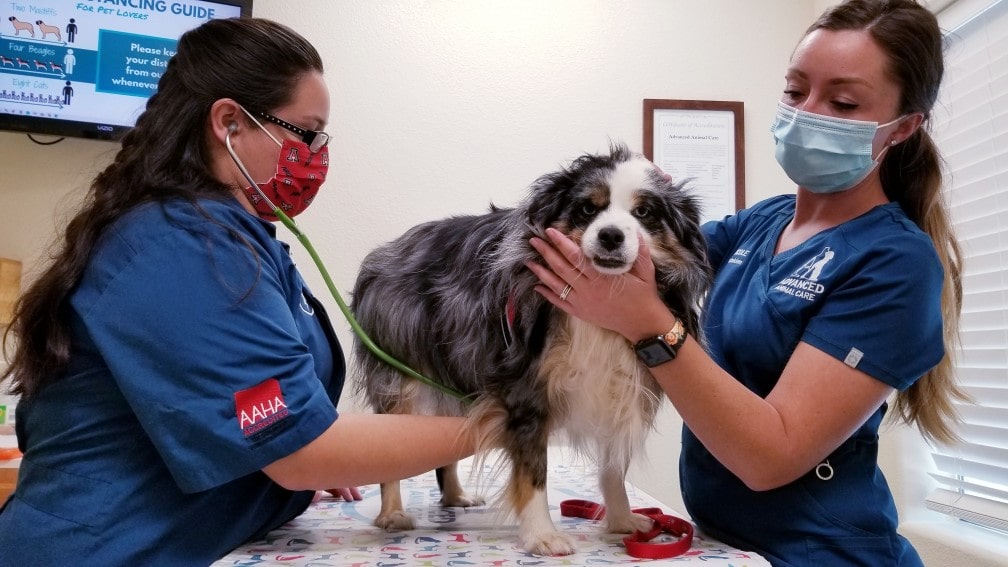A dog’s normal body temperature fluctuates between 99.5-102.5 Fahrenheit. If the body temperature goes above 103.5 ° F (39.7° C), it can be considered a fever.
You should note that fever is not some disease but a symptom of an underlying cause. The cause could be a viral or bacterial infection or anything else. If a fever goes too high or remains for a period of more than 2 weeks, then proper medical attention is required.
How to tell if your dog has a fever?
With dogs, it is not easy to tell if they have a fever because their body temperature is generally high compared to humans.
Fever Symptoms in Dog:
- Their appetite will decrease
- Their body will be too hot to touch (around the belly region)
- Rapid heart rate
- Decreased urine output and dehydration
- They’ll act lazy and weak
- You can see your dog shivering
- There might be other symptoms depending on the underlying cause
Possible underlying causes
- Metabolic diseases
- Infections (most commonly, bacterial, viral, parasites, and other microorganisms)
- Immune disease
- Inflammatory conditions
- Endocrine diseases
- Exposure to drugs or toxins etc.
- Tumors
How to check for temperature?
Firstly, you should always have a “dog first aid kit” at your home. Keep a digital thermometer (Non- Mercury) handy. You’ll need that to check your dog’s temperature.
Preparing a rectal thermometer:
- You will have to lubricate the thermometer’s tip with petroleum jelly or water-based lubricant.
- Make sure that the thermometer is working correctly before using it.
Using the thermometer:
- Get someone to help you keep the dog up and hold it firmly. If your dog seems uncomfortable, rush to a vet immediately.
- Lift their tail up and insert the lubricated thermometer gently, not more than an inch (2.54 cm). It is imperative to get this right! Inserting the thermometer too deep or too shallow can interfere with the readings and make the dog more uncomfortable.
- You can also use ear thermometers to take the temperature through the ears.
- Note the time – for digital thermometers, wait for the beeps to be over.
What to do next?
If your dog’s fever is more than 103.5 ° F, you must immediately take them to a vet. If your vet isn’t available, take them to the nearest animal hospital. Do not wait for the fever to go down by itself.
Dog’s immune system is very different from a human’s. Do not take chances and get the underlying cause diagnosed and treated as soon as possible.
Read Also: Most Common Allergies in Dogs
Reference: PetMD – Check this site for more information.

 DogExpress
DogExpress



















 in Chandigarh, India.
in Chandigarh, India. 
